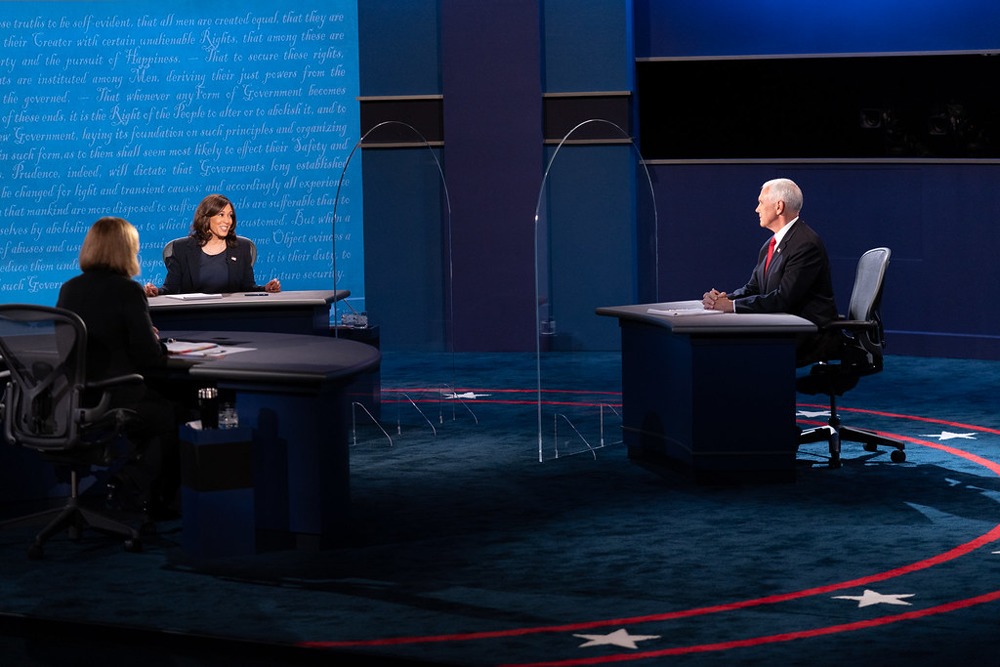
The first 2020 presidential debate took place Sept. 29 between President Donald J. Trump and Democratic presidential nominee Vice President Joe Biden.
Since the first presidential debate between John F. Kennedy and Richard Nixon in 1960, debates have been a major part of the election process. They consist of both major party candidates answering a series of questions asked by a neutral moderator and debating issues to attempt to win the votes of the American electorate. Third-party candidates are not usually allowed in the debates, as a candidate must poll at least 15% to participate.
For many California Baptist University students, the 2020 election is the first presidential election in which they are eligible to vote. Trevor Mannion, professor of political science, said that students should approach watching the debates with a certain mindset.
“Go in with an open mind favoring neither candidate, and when either makes a bogus claim you should call it out or research it if you do not believe it,” Mannion said. “Students (or any interlocutor) need to be challenged.”
Mannion said most people typically walk into a debate with a pre-determined bias toward a particular candidate.
“The literature that I have read on this has shown that there is no correlation between a debate’s victor and the candidate nominated,” Mannion said.
Mannion cited evidence for the lack of correlation between debates and election winners by discussing the 2000 election between George W. Bush and Al Gore.
According to exit data, Gore won the debates against Bush, but Bush won the election and became president.
The 2020 election is taking place during unprecedented times, and COVID-19 has thrown in a unique variable. Mannion also spoke on this topic, elaborating by noting the heightened sense of issues during this election.
“To play politics as usual during these unprecedented times is odd,” he said. “The polarized speech by both candidates makes this election seem more ‘make or break America’ than most others I have seen.”
Marlene Buitron, sophomore political science major and member of the debate team, said she watches the debates to learn about candidates’ thoughts on important issues.
“Facts are crucial during debates because they help the audience understand the problem being debated along with learning what possible solutions are,” Buitron said.
Brooke Fenex, junior history major, is a second-time voter in a presidential election. She said she is extremely passionate about the world of politics and the importance of staying informed as the election progresses.
“When I am watching presidential debates, I am looking for candidates to discuss action plans for current issues, typically social issues such as Black Lives Matter, institutional racism and LGBTQ+,” Fenex said. “It is our civil duty to engage with the presidential debates or any kind of national campaigning.”
The next presidential debate for the 2020 election will be held on Oct. 22, as the second debate that was scheduled for Oct. 15 was canceled after Trump contracted COVID-19.


